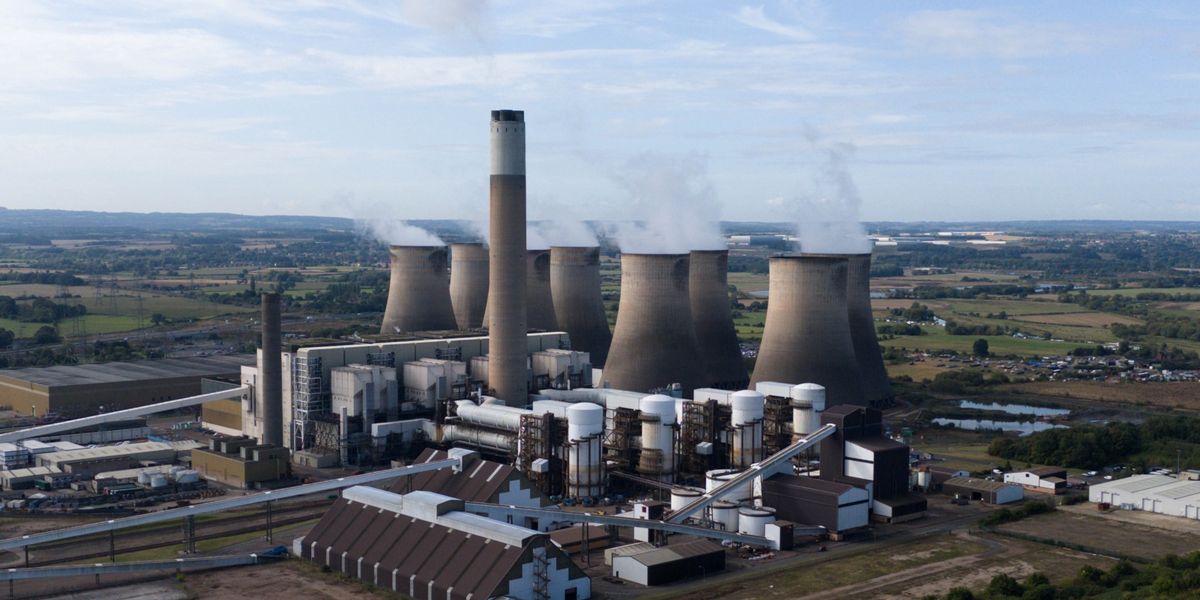The End of an Era: Ratcliffe-on-Soar Power Station Closes Its Doors
Today marks a significant milestone in the United Kingdom’s energy history as Ratcliffe-on-Soar, the last remaining coal-fired power station, ceases operations. This closure not only symbolizes the end of an era dominated by coal but also heralds a new chapter in the nation’s pursuit of cleaner, renewable energy sources. With the UK government promising a “new age of good energy jobs,” the transition from coal to greener alternatives is set to reshape the energy landscape.
A Legacy of Power
Ratcliffe-on-Soar, located in Nottinghamshire, has been a cornerstone of Britain’s electricity supply since it began operations in 1968. The power station, with its four coal-fired boilers, eight cooling towers, and a towering 199-meter chimney, has powered millions of homes and businesses across the region. At its peak, coal accounted for approximately 80% of the UK’s energy supply in 1990, a stark contrast to the mere 1% generated from coal today.
Mary Weston-Webb, a local resident who has lived near the power station since 1988, reflects on its impact: “It’s given us power all these years.” She recalls the earlier days when the area was marred by pollution, saying, “It used to be very grubby in the old days,” but notes the significant improvements made over the years.
The Shift Towards Renewables
The closure of Ratcliffe-on-Soar is part of a broader strategy by successive UK governments to phase out coal in favor of cleaner energy sources. In 2009, then Energy Secretary Ed Miliband pledged to reduce the country’s reliance on coal, a commitment that was reinforced by the Conservative government in 2015, which set a target to end coal generation by 2025. This target was ultimately brought forward, culminating in today’s closure.
Michael Shanks, Minister for Energy, emphasized the significance of this transition, stating, “The era of coal might be ending, but a new age of good energy jobs for our country is just beginning.” The government’s clean energy mission aims to create employment opportunities in wind power and emerging technologies like carbon capture and storage.
Economic and Environmental Implications
The closure of Ratcliffe-on-Soar will result in approximately 154 job losses, although some staff will remain during the decommissioning process. Unions are actively supporting affected workers in finding new employment and retraining opportunities. The shift from coal to renewable energy not only addresses environmental concerns but also aims to enhance energy security and independence, protecting families from fluctuations in fossil fuel prices.
Dhara Vyas, deputy chief executive of Energy UK, highlighted the remarkable progress made in just a decade: “Ten years ago, coal was the leading source of this country’s power – generating a third of our electricity. To get to this point just a decade later, with coal’s contribution replaced by clean and low carbon sources, is an incredible achievement.”
A New Future for the Site
As Ratcliffe-on-Soar transitions into decommissioning, plans are already in place for the site’s future. The East Midlands Freeport has seen significant development, and Rushcliffe Borough Council has granted permission for Uniper, the power station’s owner, to construct a zero-carbon technology and energy hub on the site. James Naish, Labour MP for Rushcliffe, remarked on the importance of this transition, stating, “It’s significant, not just for Rushcliffe, but the country.”
While some locals express a desire to preserve parts of the iconic cooling towers as a tribute to the past, others look forward to the potential for new jobs and clean energy generation. Mary Weston-Webb, who appreciates the beauty of the towers, said, “I think they’re quite beautiful. I’ll miss them.”
Honoring the Past, Embracing the Future
Uniper CEO Michael Lewis reflected on the legacy of Ratcliffe-on-Soar, stating, “For me, Ratcliffe has always been more than just a power station—it has been a pillar of the UK’s energy security for decades.” He acknowledged the station’s role in powering over two million homes and businesses, emphasizing the need to honor its legacy while embracing a future of cleaner energy.
Plant Manager Peter O’Grady expressed his emotions on this historic day, stating, “It is an emotional day for me as well as for the team. When I started my career 36 years ago, none of us imagined a future without coal generation in our lifetimes.” His pride in the achievements of the team reflects the collective effort that has brought the UK to this pivotal moment in its energy journey.
Conclusion
The closure of Ratcliffe-on-Soar power station signifies more than just the end of coal-fired electricity generation in the UK; it represents a transformative shift towards a sustainable energy future. As the nation moves forward, the focus will be on creating new jobs, enhancing energy security, and combating climate change. While the cooling towers may soon be a memory, the legacy of Ratcliffe-on-Soar will endure as a testament to the UK’s commitment to a greener, cleaner future.
